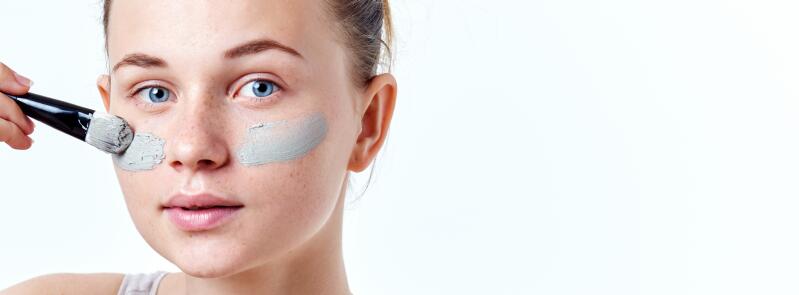-
Your concerns
Our articles to help you gain a better understanding
-
Our solutions
-
Ducray Dermatological laboratories
Our articles to help you gain a better understanding

Whatever your skin type, a mask is a treatment that you may like to use from time to time, for your skin and for yourself. In particular, acne masks can help to improve the condition of the skin, but they must be used correctly.
An acne mask should help fight excess oil and shine. Exfoliating substances cleanse clogged pores and refine skin texture. Other active ingredients soothe and hydrate the skin, which is often damaged by irritating or drying treatments.
Acne masks are an active treatment. Using them every day does not get rid of acne any faster and may lead to irritation or worse, sebum overproduction, i.e. the opposite of the desired effect. You should use acne masks once or twice a week.
Apply the acne mask to dry or wet skin, avoiding the eye contour area. Do not use an acne mask if the skin is really irritated. Leave on for the indicated time and rinse thoroughly. If the acne mask contains exfoliating substances, gently massage them into the skin.
There are many recipes on the Internet and in magazines. A first step is to add an ingredient to your usual care, for example a drop of tea tree essential oil, known for its cleansing properties. A second steps consists of making your own acne mask with natural ingredients such as clay, lemon juice, honey, certain vegetable oils or essential oils. Everyone has their own recipe for an acne mask but be careful, natural does not mean risk-free! Some ingredients are irritating or allergenic and it is better to test a small area of skin before starting. Some articles suggest using an acne scar mask. And yes, why not, as a complementary treatment! But this should not make you forget the basics.
The best weapons for fighting scars are, on the one hand, early and rigorous treatment of spots, and on the other, to avoid touching spots.
Oily or acne-prone skin

Oily or acne-prone skin
NEWSLETTER
Dermatological expertise
To better understand your skin and hair, discover our exclusive content and innovative care products designed to improve your quality of life..